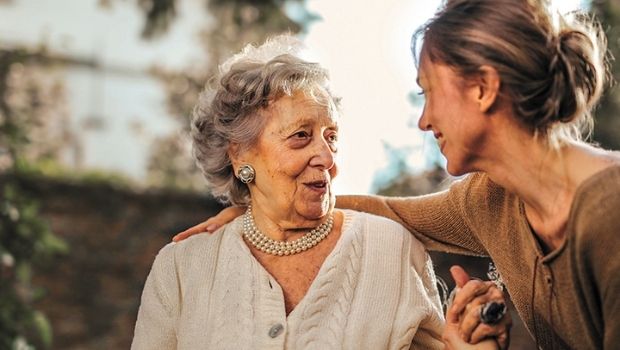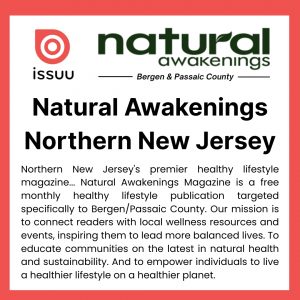Integrative Hospital Care: Medicine Embraces Holistic Modalities
Thirty years ago, hospital patients were treated for symptoms based on the Western medical model, and holistic modalities were excluded, largely due to a lack of reliable scientific studies. More recently, because of promising research, the traditional template is expanding. The Academic Consortium for Integrative Medicine & Health encompasses 75 university health centers and health systems that offer integrative approaches—a remarkable seven-fold increase in 21 years. America’s top hospitals, including the Memorial Sloan Kettering Cancer Center, the Mayo Clinic, the Duke University Medical Center and the Yale New Haven Hospital, now offer therapies such as acupuncture, reiki, homeopathy, touch therapy, yoga, clinical aromatherapy and chiropractic.
Disease: The Big Picture
Denise Millstine, integrative physician and internal medicine specialist at Mayo Clinic in Arizona, concurs: “The opiate crisis is an example of the need to broaden our clinical toolbox to incorporate care strategies that are less risky. I believe this change has been multifactorial, based on patient demand and more awareness of the importance of lifestyle management.”
Patient demand is also fueled by a desire to avoid medication side effects. In 1998, the Journal of the American Medical Association reported that 106,000 hospital deaths take place each year from adverse reactions to prescription drugs. With more than half of Americans already taking a pharmaceutical drug, and three being the average, adverse side effects can easily mount in a hospital setting.

hush naidoo/Unsplash.com
For Millstine, integrative medicine offers many solutions. “We might recommend the best medication or provide cutting-edge therapies, but without considering stress management, resilience, movement and what people ingest, it’s hard to get optimal results. Integrative medicine expanded my approach to include nutrition, exercise, mind-body (connection), spirituality and other medical philosophies like Traditional Chinese Medicine (TCM) in the patient’s therapeutic plan.”
Whole-Patient Cancer Care
A 2016 meta-analysis by Taipei Medical University published in the journal PLOS ONE concluded that certain applications of acupuncture reduce pain and opioid use on the first day after surgery.
Acupuncture—an ancient modality based on the concept of energy meridians in the body—is also offered in many major hospitals to offset the side effects of chemotherapy and radiation.
Acupuncture treatments at the Mayo Clinic are given in a calming atmosphere of soft lighting and music, and performed by trained doctors, as well as licensed acupuncturists with a firm TCM foundation.
Integrative health care addresses the emotions that accompany a cancer diagnosis, and patients undergoing conventional treatment now have access to not only acupuncture but therapeutic massage, meditation, movement therapy, clinical aromatherapy, herbal applications, biofeedback and yoga. Millstine says of theMayo Clinic, “We have oncology-trained massage providers who are comfortable with what is and what isn’t safe after someone has had a cancer diagnosis and/or treatment.”
Jonas highlights that when given under the supervision of a doctor and with conventional cancer care, complementary therapies may help people to manage cancer symptoms, boost overall well-being, better handle side effects of treatment and reduce the risk of cancer recurrence. “Integrative cancer care can help by activating one’s ability to heal and feel better physically and emotionally,” he says. “Lectures on nutrition, yoga classes and support groups for cancer patients are now common.”
Energy Medicine Goes Mainstream
“Alternative therapies are no longer considered ‘alternative’ when conventional medicine adopts them—for example, using calcium and vitamin D supplements, which are a standard consideration,” says Millstine. “With high-deductible plans, many patients are accustomed to paying out of pocket for care, thus making payment for alternative providers possibly more palatable.”

brien/AdobeStock.com
According to a 2017 study published in the Journal of Evidence-Based Complementary and Alternative Medicine, reiki is more effective than a placebo and activates the parasympathetic nervous system via the vagus nerve. Results include lower blood pressure and less anxiety and depression. Other research shows that the modality also reduces nausea, improves appetite and lessens fatigue.
Holistic Nursing’s Role
Some holistic nurses may use healing therapies such as guided imagery, aromatherapy, energy work, bodywork, deep breathing, mindfulness and meditation to help both their clients and other healthcare providers.
Those in the field of integrative medicine agree that the future of medicine is now. “People are becoming more self-aware and taking responsibility for their health and life. Consciousness is growing [by] leaps and bounds,” says Baron.

























